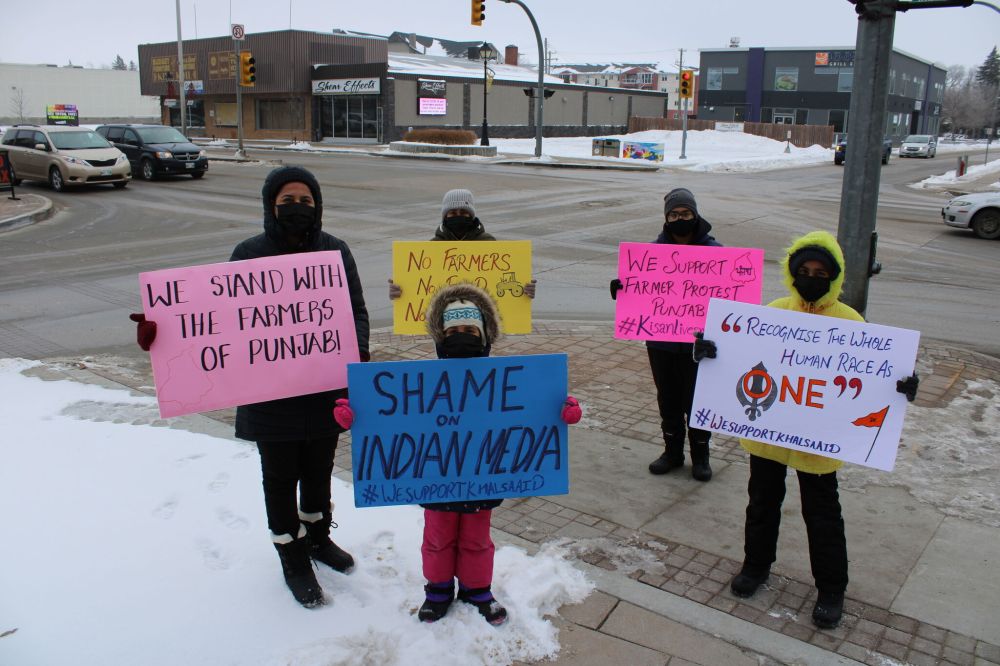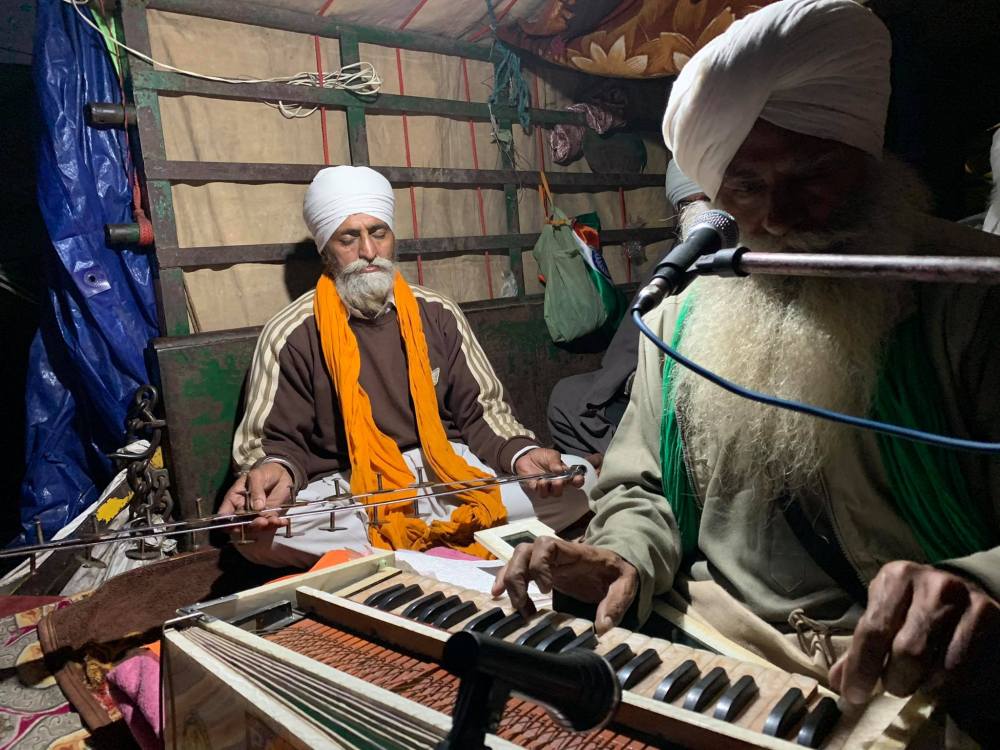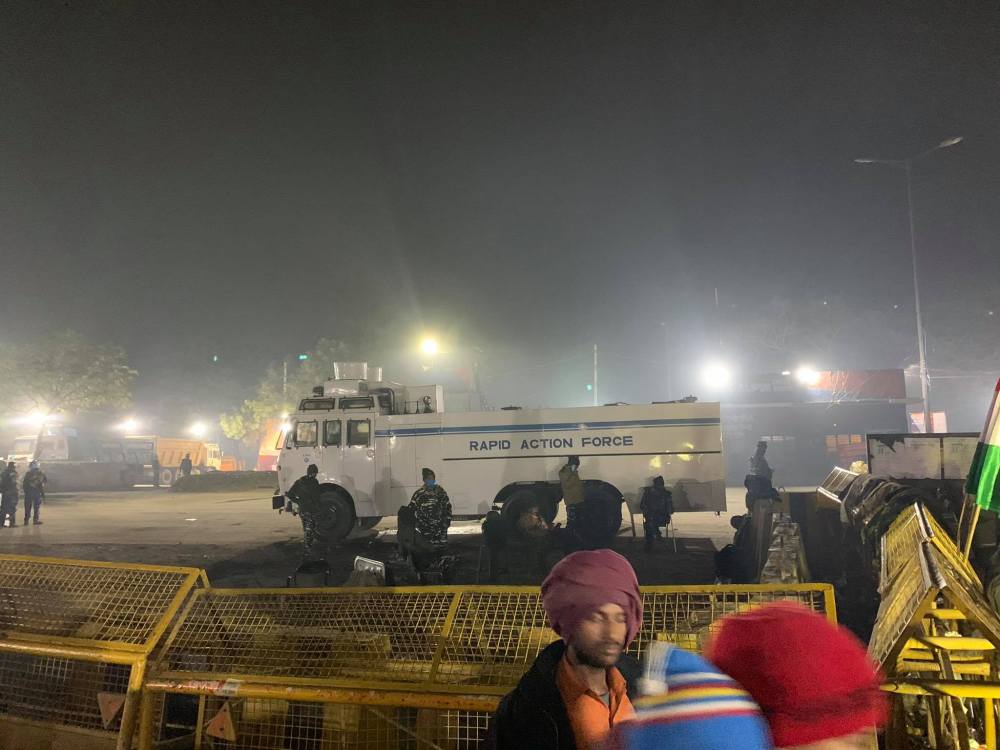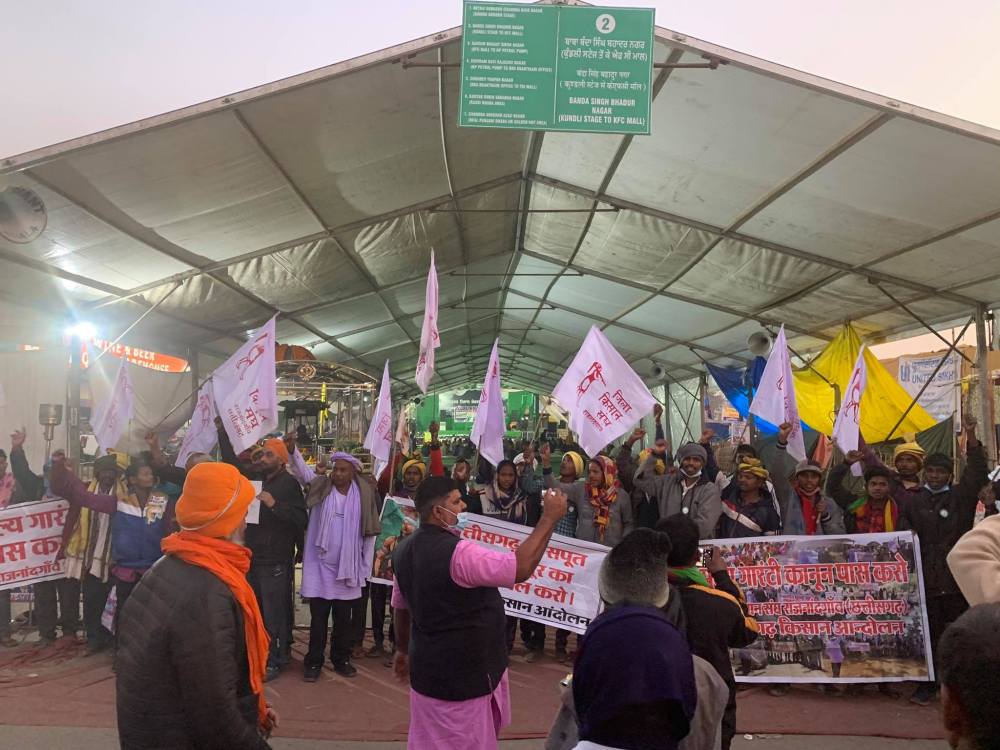Farm protests in India have allies here at home
Advertisement
Hey there, time traveller!
This article was published 28/02/2021 (1579 days ago), so information in it may no longer be current.
A trio of educational rallies have been held in Steinbach, three of hundreds across Canada in support of a protest against new farm bills nearly 10,000 kms away.
Farmers in India have been protesting farm bills for more than six months, and support for their cause has been proclaimed around the world.
Steinbach’s small Indian community, with roots mainly in Punjab, India, have been one of the groups that have taken to the streets with car rallies, and street corner protests.

Harkamal Sandhu participated in the rallies. The Indian immigrant came to Canada in 2018. A tall turban wearing, soft spoken man, the issue is near and dear to him.
He worked in agriculture and the rural banking sector and still owns land in India.
“My land is my everything,” he said. “It is a huge part of my identity.”
That’s why he’s continued to invest in land in the Punjab province as recently as last year.
That investment does generate income, but it means much more than that to Sandhu.
He recalled how his grandfather, a farmer, would take him to their farms where they would sit together and learn the basics of farming. He leases his farms back home to his cousins and they pay him a part of the farm’s earnings twice a year. The income generated is enough to cover his expenses for a trip back home.
Sandhu is part of an ethnic group called Jatts who live in northern India and Pakistan. They have traditionally been farmers and landowners in India. For them, land, called zameen in Punjabi, is an important part of their identity.
“We are Jatts and zameen is our mother,” he explained.
While the epicentre of the protest is in the state of Punjab (a Farsi word meaning land of five rivers) and Haryana, it finds support in other states as well.
Punjab is home to about 28 million people, and is the centre of food production and home to many of the Jatts. The Jatts are financially well-off, educationally progressive and have political influence in their lands.

Many like Amandeep Singh Bains, a dentist and social activist based in India, believe that the new laws are a direct threat to the Jatts’ future.
They are the majority of those protesting in Dehli, India’s national capital, home to more than 30 million people.
Farmers unions along with farm labourer’s unions like the Bhartiya Kisaan Union (BKU) and Mazdoor Sangharsh committee have been active against the new laws which they refer to as “kale kanoon”. That translates to “black laws” implying they bring black days for farmers.
New laws explained
The three new laws include the Farmers’ Produce Trade and Commerce (promotion and facilitation) Act, the Farmers’ (empowerment and protection) agreement on price assurance and Farm Services Act, and the Essential Commodities (amendment) act.
Broadly explained these laws when brought into effect will lead to the abolition of traditional grain markets or “mandis”, will remove crops like pulses, cereals, oil seeds, edible oils, onions and potatoes from the list of essential commodities. That means they can be warehoused with no cap on how much can be stored, allowing private enterprise to control prices by controlling supply.
Mandis, which currently control the buying and selling of farm produce, while building roads and other essential infrastructure, would be eliminated.
Ranvinder Sarawar, a participant at Steinbach’s rally to express solidarity with farmers said the new laws aren’t just going into place to help private enterprise. He has many reservations about the present Hindu Nationalist government of India.

”I fear that the agriculture sector in India, the bread and butter of Jatts and other farming communities will eventually be taken over by rich plutocrats namely the Ambani and Adani groups” says Ranvinder.
Mukesh Ambani and Gautam Adan are two of the richest men in India and are close to Prime Minister Narendra Modi.
Critics believe the government wants to ultimately convert the rural population into a cheap urban labour class, benefitting the rich families who could capitalize on the new laws.
Not everyone believes the new laws are entirely out of line.
Mohan Guruswamy, a Harvard graduate, said that agricultural reforms are much needed in the Indian agriculture sector. However he also believes the income from agriculture is unequal and unevenly distributed. He supports a subsidy grant from government to farmers based on the land they own against the MSP (minimum support price).
Agriculture employs about half of India’s 1.3 billion residents and unrest among an estimated 150 million land-owning farmers is one of the biggest challenges to the government.
A vicious response
Protesting farmers have not been met with support by everyone. Attacks on the protestors have been blamed on the Hindu nationalist group called Hindu Sena. The debate has even attracted the attention of celebrities.

Bollywood actor Kangana Ranaut called the protesting farmers “terrorists”. Some celebrities are on the other side of the issue such as singers Jass Bajwa and Punjabi singer Shree Brar. Brar was detained by police over his “farmer’s anthem” supporting the cause.
The protests are also attracting support from the world community.
Pop singer Rihanna, Greta Thunberg and Amanda Cerney have expressed support drawing ridicule from those in favour of the new farm bills. Workers of the nationalist BJP Party even burnt effigies of Greta Thunberg.
Despite some opposition, local support remains strong with donations of blankets and food being given to protestors. Khalsa Aid, an international Sikh welfare organization has also given support.
Media in India has painted the protest as part of the Khalistani movement, one that began in Punjab in the 1980s demanding a separate nation for Sikhs. However critics say that movement is no longer active.
Farmers have been sitting on roads dealing with the cold foggy winter conditions. They live in makeshift accommodations on the road without access to electricity and proper sanitary conditions.
